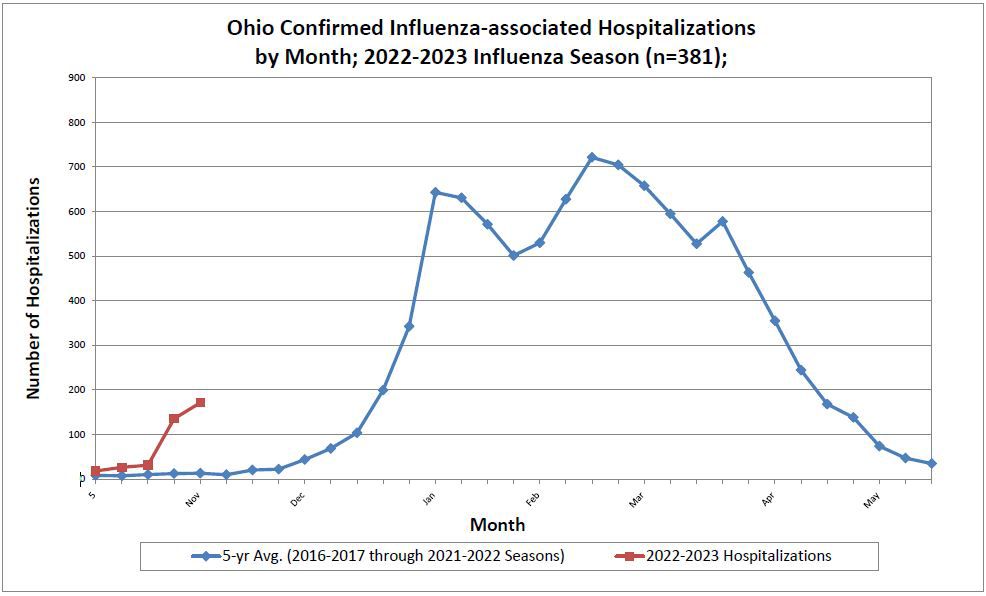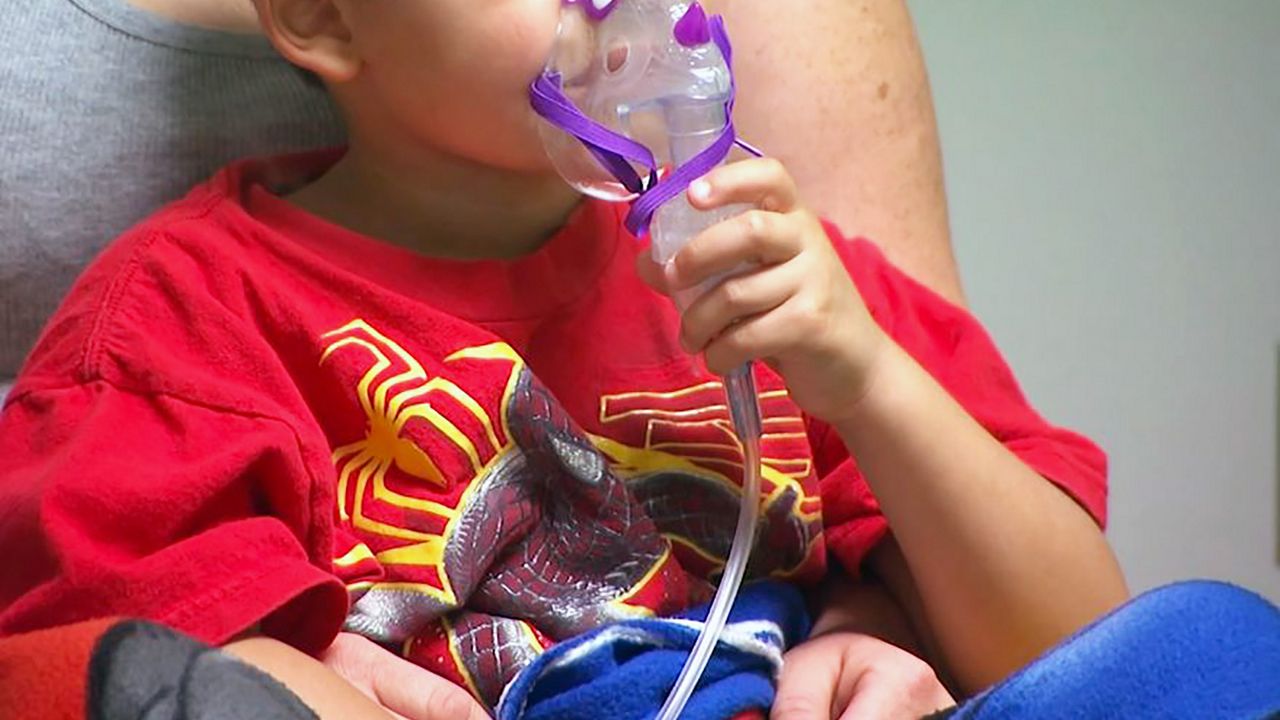OHIO — Respiratory Syncytial Virus is on the rise in Ohio, increasing quicker than normal. It's forcing hospitals to take extensive measures to handle the high volume of patients.
Dr. Bruce Vanderhoff said Tuesday that while Ohio and the rest of the Midwest aren't seeing the high volume of RSV cases other parts of the country are documenting, it's the RSV cases mixed with influenza cases that's worrying health officials across the state.
"We are also now witnessing a significant increase in influenza hospitalizations," Vanderhoff said. "The result, though, of an early and dramatic spike in RSV and now an overlapping rise in influenza is a high demand in our hospitals."

The high demand is creating longer than normal wait times for many patients, leading some hospitals to change operations.
Dr. Rustin Morse, the chief medical officer Nationwide Children’s Hospital, said seeing respiratory illness in children in the winter is normal. They gear up, get ready and they get through the season helping as many children as they can. But Morse said this year is different.
"What is really unique this year is that it’s much earlier than usual and it’s much higher than usual," said Morse.
Morse said the high volume of cases combined with ongoing staffing challenges is making it challenging for hospitals to keep up. At Nationwide Children's, Morse said they had to take a number of steps to be able to handle the rise in patients with respiratory illness coming in, including expanding urgent care and emergency room capacity, as well as pushing off scheduled surgeries, if they are able to be postponed.
While the high volume of patients is a concern, health officials' ultimate goal is to prevent hospitalizations, especially for children as they are most vulnerable and can get the worst symptoms. Health officials are urging families to receive to flu vaccines as the holidays are around the corner, with many expected to gather with loved ones.
"I know it's hard for people to realize, but we do see children die of the flu. This is really a vaccine-preventable disease, so we want to be doing everything that we can to protect our children and ourselves," said Dr. Claudia Hoyen, the director of infection control, University Hospitals and UH Rainbow Babies and Children’s Hospital.
All health officials at a Tuesday press conference focused on RSV also reminded Ohioans that COVID-19 hasn't gone away, and urged individuals to get the COVID-19 booster. Most of Ohio's counties currently have a "high level" of COVID-19 spread, according to the latest data from the U.S. Centers for Disease Control and Prevention.
Symptoms of RSV
The virus causes cold-like symptoms and is the most common cause of bronchiolitis and viral pneumonia in infants under 1 year old. RSV can cause severe illness in older adults.
RSV is spread through respiratory droplets when someone coughs or sneezes, and they can settle in the eyes, nose or mouth of another person or on common household items, such as tables, doorknobs, cell phones and tablets. If an individual is sick with RSV, it can easily be passed to babies by snuggling them.
In some cases, RSV infection can lead to worsening of chronic conditions like asthma, chronic obstructive pulmonary disease and congestive heart failure.
Symptoms can change depending on age. Babies younger than 6 months old may show:
- Irritability
- Decreased feeding
- Decreased activity level
- Temporary pauses in breathing (apnea)
- Fever
- Wheezing
Older babies and children may show:
- Runny nose
- Nasal congestion
- Decreased appetite a few days before the cough
- Sneezing
- Fever
- Wheezing
In adults, the symptoms may mimic the common cold and include:
- Runny nose
- Sore throat
- Cough
- Headache
- Fatigue
- Fever
Preventing RSV infection
ODH gave these tips for families:
- For some babies who meet specific criteria for being at high risk of getting RSV, there is a preventive monoclonal antibody called Palivizumab available. Your child’s health care provider will discuss this option with you if your baby or child is eligible. Monoclonal antibodies will not treat or cure an existing infection and are only used to prevent RSV in eligible individuals.
- Encourage good handwashing of adults and older children in the household for at least 20 seconds.
- Remember to cover coughs and sneezes.
- Avoid close contact with anyone who is sick (avoid kissing, handshakes, sharing eating or drinking utensils).
- Clean high-touch surfaces like doorknobs, tables, cell phones and other electronics.
- Older children, caregivers, and adults in the home who are sick with viruses should avoid interactions with individuals considered to be at high risk of severe RSV.
- Limit time in potentially contagious settings such as child care centers.
- Decrease or eliminate exposure to environmental secondhand smoke and breastfeeding, if you can, to help reduce respiratory infections.
- Keep an eye on RSV trends in your area and take extra precautions when needed.



